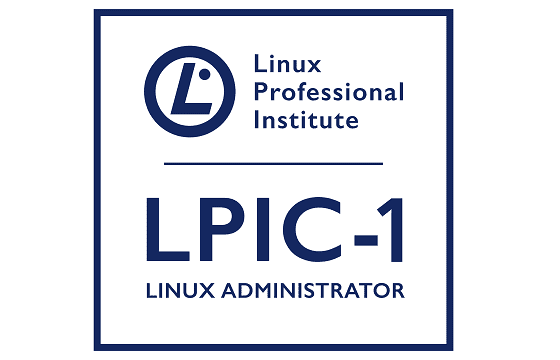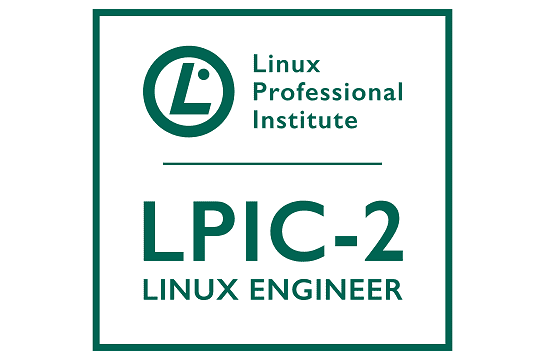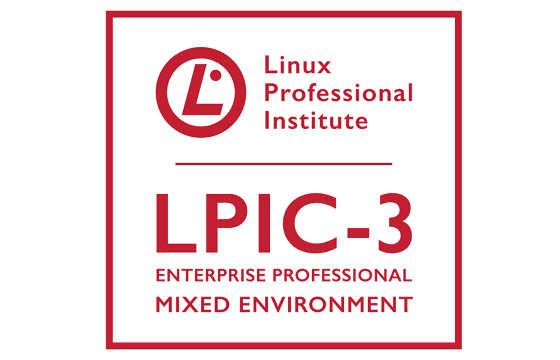Hot LPI Certifications
All LPI Exams
About LPI Certifications
LPI stands for Linux Professional Institute and is famed as the gold standard of Linux certification provider that individuals can use to leverage at every stage of their career. This non-profit organization offers vendor-neutral Linux and open-source certifications around the globe.
LPI Certifications Overview
The LPI accreditation pathway meets the requirements of the companies and IT specialists of various levels. Therefore, this track includes initial validation for aspiring specialists in open source, as well as professional designations for practicing Linux systems administrators. In addition, the Open Technology certifications that target BSD and DevOps tools Specialists are available for all applicants.
It should be noted that all LPI certificates are valid for 5 years. At the end of this period, you must either renew your certification or upgrade to a higher level.
Anyway, let's look at some of the LPI designations in more detail.
#1 – LPI Linux Essentials
The elementary designation that LPI proposes is Linux Essentials. It is the emblem of superiority that an industry beginner can seize and let the world accept that foundational Linux skills, apt for entry-level Information and Communication Technology job roles, are inherited well. Therefore, it gives the ideal introduction for advanced levels of certifications.
Certification Requirements
Because this is an entry-level certification, candidates are exempt from the obligation of procuring any prior certification. However, a notable understanding of Linux OS and open source industry, Linux major components, and a rudimentary understanding of security and administration tools required for this operating system are highly urged by the vendor.
Appropriate Exam Overview
Appear for the 010-160 exam, which features 40 exam items and is 60 minutes long, and secure a passing grade to earn the Linux Essentials certificate. Moreover, the score comes with lifetime validity and is globally accessible.
Regarding the delivery mode, Pearson VUE is learning the responsibility to conduct the evaluation online or at the offline testing center.
The composite preparation for this LPI exam is based on topics like open-source application understanding, elementary understating of hardware, Linux OS, and programming components, the process to work with lines, skills needed to create command lines with files, and restore the backups.
Career Path
There's no denying that the Linux Essentials certificate is a great place to start your career as a Linux operating system administrator. But there are more professional designations like LPIC-1, LPIC-2, and LPIC-3 ahead of you, which will help pump up your skills and accelerate your career.
#2 - LPIC-1
As you understand, this is the first step to be taken while one wishes to pursue the multi-level Linux professional certification track. Using a structured curriculum, this accreditation allows earners to have intermediate excellence in the maintenance of the command line and configuration of Linux OS. In other words, it prepares the candidates for more advanced system administration job roles.
Certification Requirements
Before aiming at LPIC-1, ensure that a sound understanding of Linux system architecture, Linux workstation, and Linux command line is supporting your candidature. In addition, having the LPI Linux Essentials qualification will give you more confidence in your knowledge on the final test.
Relevant Exam Overview
LPIC-1 aspirant has to conquer two official exams, 101 and 102 tests, to claim the certification. Each one features 60 multiple choices and fill-in-the-blank questions and lasts for 90-minutes.
Candidates across the globe can get registered for these two exams through the Pearson VUE website. However, the enrollment fee will vary as per the candidate’s location.
Both online and offline proctored mode is available for LPIC-1 exams. But it is worth remembering that the obtained certificate is valid for 5 years.
Concerning exam syllabus, the focus of the LPIC-1 101 exam is on concepts like architecture, installation process, Unix commands, Linux Filesystems, and the like.
Meanwhile, the LPIC-1 102 exam revolves around shells & shell scripting, networking, security, administrative tasks, and core system services.
Further Certification Path
As mentioned above, the professional path of the LPI accreditation consists of a series of designations. Therefore, once you get the LPIC-2 qualification, you should not stop there. Take a breath, evaluate all the possibilities, and move on to the next level, LPIC-2.
#3 - LPIC-2
LPIC-2 is the second step of the layered LPI certification. What’s more, the earners of this accreditation are famed for their unmatched ability to effectively administer small to medium-scale mixed networks.
Designation Requirements
Unlike previous qualifications, to obtain the LPIC-2 certificate the vendor not only requires professional knowledge and passing the appropriate exam but also previously passed the LPIC-1 certification.
Exam Overview
So, to make the LPIC-2 certification all yours, you have to weave success in 201-450 and 202-450 exams. Both these exams are 90 minutes long and feature 60 multiple-choice and fill-in-the-blank questions.
Exam registration will be done via Pearson VUE. Speaking of exam delivery, online & offline proctoring are also available options.
In more detail, the 201-450 exam structure is based on topics like capacity planning, system startup, system maintenance, networking configuration, and Linux Kernel among others.
On the other hand, exam 202-450 lets the exam-takers explore topics related to the domain name server, file sharing, e-mail services, network client management, web services, and much more.
Career Path
Depending upon the area of interest, the LPIC-2 certified professionals can aim at LPIC-3 Enterprise Mixed Environment, LPIC-3 Enterprise Security, or LPIC-3 Enterprise Virtualization and High Availability designation. Each one is capable to place you at the zenith of the respective technology area and open up limitless career and financial opportunities.
#4 - LPIC-3 Enterprise Security
The most acceptable proof of excellence that one can achieve in the Linux security field is the LPIC-3 Enterprise Security certificate. Extensively, the gist of Linux system enterprise security practices, used during the administration of Linux OS, is incorporated in this designation.
Certification Requirement
As you probably realize, to be eligible to take the associated accreditation exam, a candidate must already have the active LPIC-2 qualification.
Exam Overview
The relevant exam is 303-200 by code that is 90-minute long and features 60 questions needed to be tamed to claim one’s right on the LPIC-3 certification. The test items will be based on multiple-choice and fill-in-the-blank format. Like other LPI tests, the 303-300 is a globally accessible exam administered by the Pearson VUE platform and taken online or in person.
Career Path
This is the highest level of the LPI certification journey, but that does not mean you do not have room to grow. For example, you can explore other suggested areas related to Linux services such as Enterprise Mixed Environment or Enterprise Virtualization and High Availability.
Or consider the LPI Open Technology certification path, which covers knowledge and skills related to open technology tools.
Career Prospects
The entire LPI accreditation path aims to train and qualify a capable Linux Systems Administrator. And your career future and salary depend solely on your aspirations and experience.
But, if you need an extra dose of motivation, according to ZipRecruiter.com, the average salary for this position is around $71k, while the professional with the LPIC-3 certificate can earn around $99k. This is not the limit.




